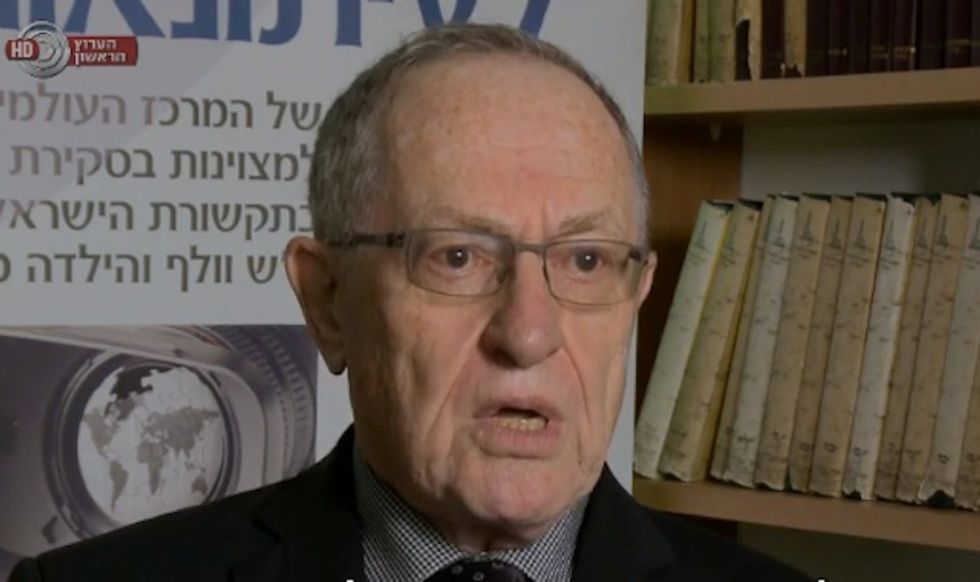
Constitutional scholar Alan Dershowitz says the Supreme Court's Jerusalem passport case ruling is a "misreading of the Constitution" and American history. (Screenshot: Israel Broadcasting Authority-IBA)

Harvard University law professor Alan Dershowitz said last week’s Supreme Court ruling that U.S. citizens born in Jerusalem cannot list Israel as their country of birth on their passports was “a misreading of the Constitution” and “a very dangerous, bad precedent,” because it gave the White House “too much power” over Congress in matters of foreign policy.
“To the extent that the president is emboldened by this decision to say: ‘I’m the one who makes foreign policy for the United States, not Congress,’ it can have terrible implications for world peace,” Dershowitz told Israel’s Channel 1 news in an interview broadcast Saturday night, characterizing the decision as “terrible.”

Dershowitz said he believes the ruling was “dangerous to the world, because it gives the president of the United States sole authority to make a bad deal with Iran” over its nuclear program.
The court ruled last Monday that that Congress had overstepped its bounds when it passed a law in 2002 requiring the State Department mark “Israel” as the country of birth of U.S. citizens born in Jerusalem who requested that designation in their passports.
The ruling brought an end to the more than decade-long case by Jerusalem-born U.S. citizen Menachem Zivotofsky.
“It’s a misreading of the Constitution. It’s a misreading of American history,” Dershowitz said. “This is the wrong opinion at the wrong time giving the wrong institution too much power over foreign policy.”
“The case should never have been brought, because it gave the Supreme Court an opportunity to make some very bad law that will affect Iran,” he said. “Now, whether or not Jerusalem is recognized officially by the State Department or by the president as the capital of Israel has importance and significance, but that significance pales by comparison with the importance of Congress having a role in not allowing the President of the United States to make a bad deal with Iran about nuclear weapons.”
Dershowitz -- who described himself as a domestic policy liberal, a two-time voter for President Barack Obama and a potential supporter of Democratic candidate Hillary Clinton -- complained that the Supreme Court has been increasingly favoring the power of the executive branch of government over the legislative.
“This is ignorance of the founding of America. The United States was founded as a legislative government, a government in which the House of Representatives, not so much the Senate, but the House of Representatives were central to every aspect of American policy,” Dershowitz explained.
“The Constitution says ambassadors must be confirmed by the Senate, treaties must be confirmed by the Senate, all monetary legislation must be initiated by the House, in other words, all sanctions' legislation has to come from the House of Representatives,” he said. “The Constitution did not envision a strong president, did not envision a president that had sole authority over foreign policy and can make a deal with Iran that is really a treaty but pretends to be something else.”
Watch the full interview here, beginning at the 9:30 mark.